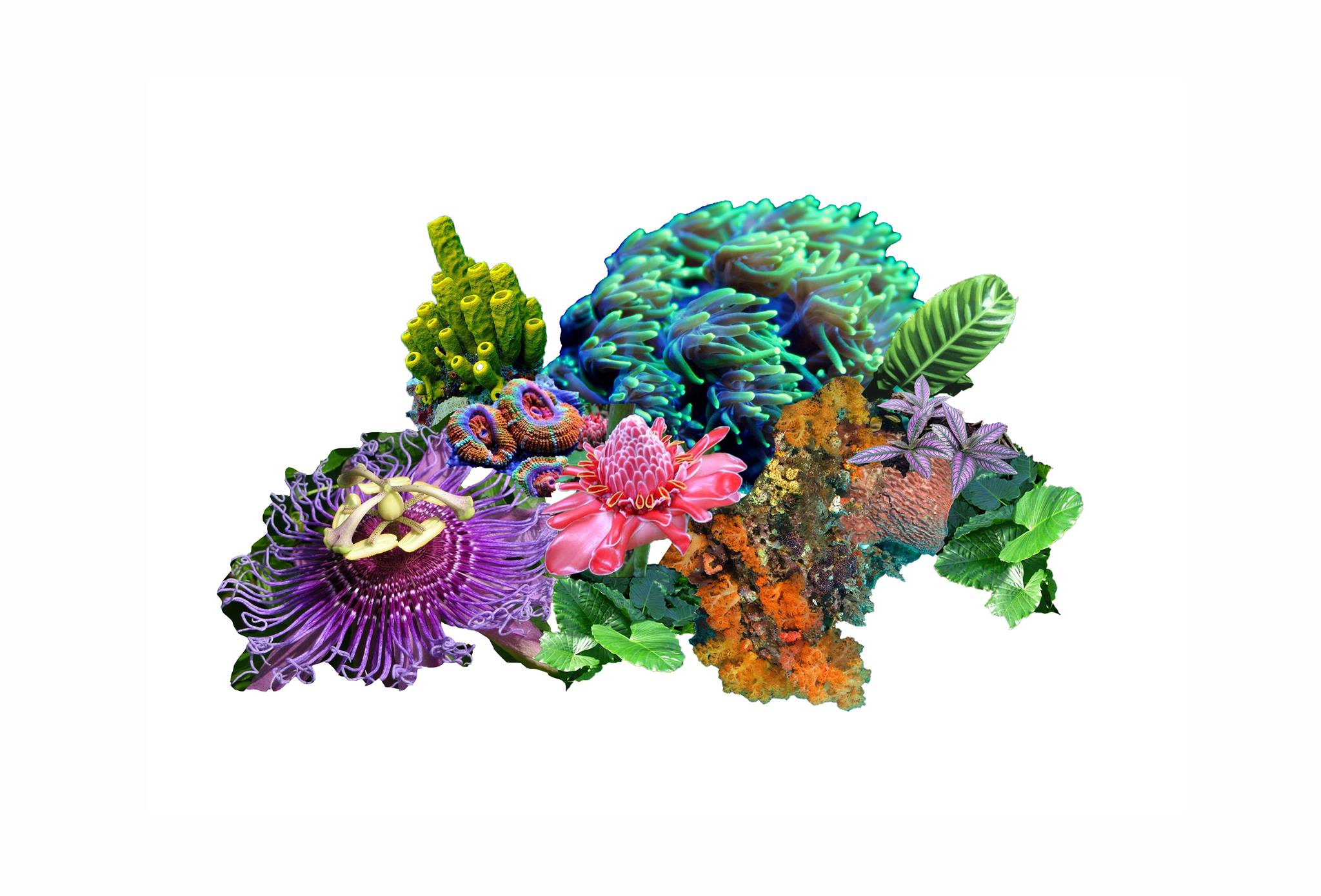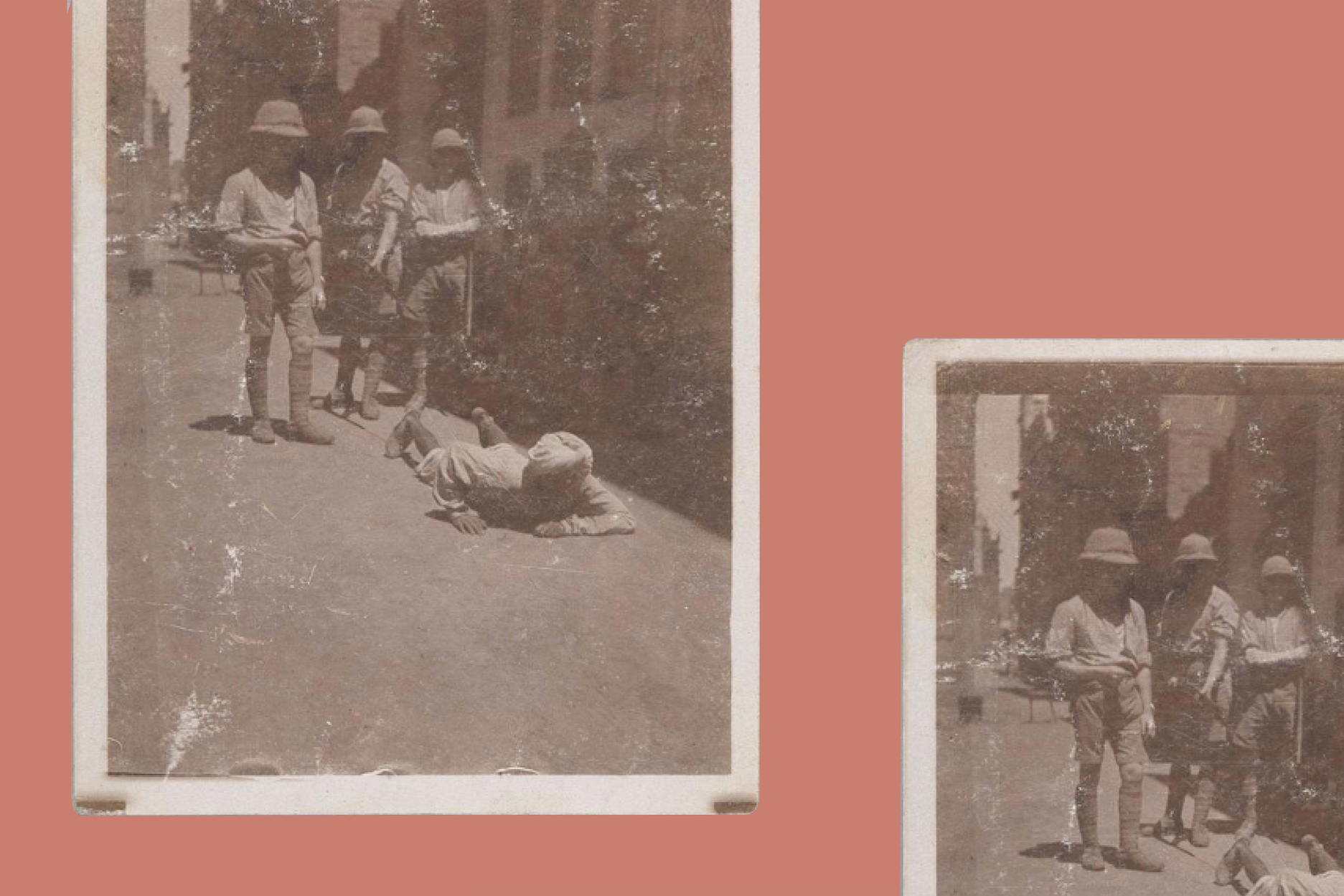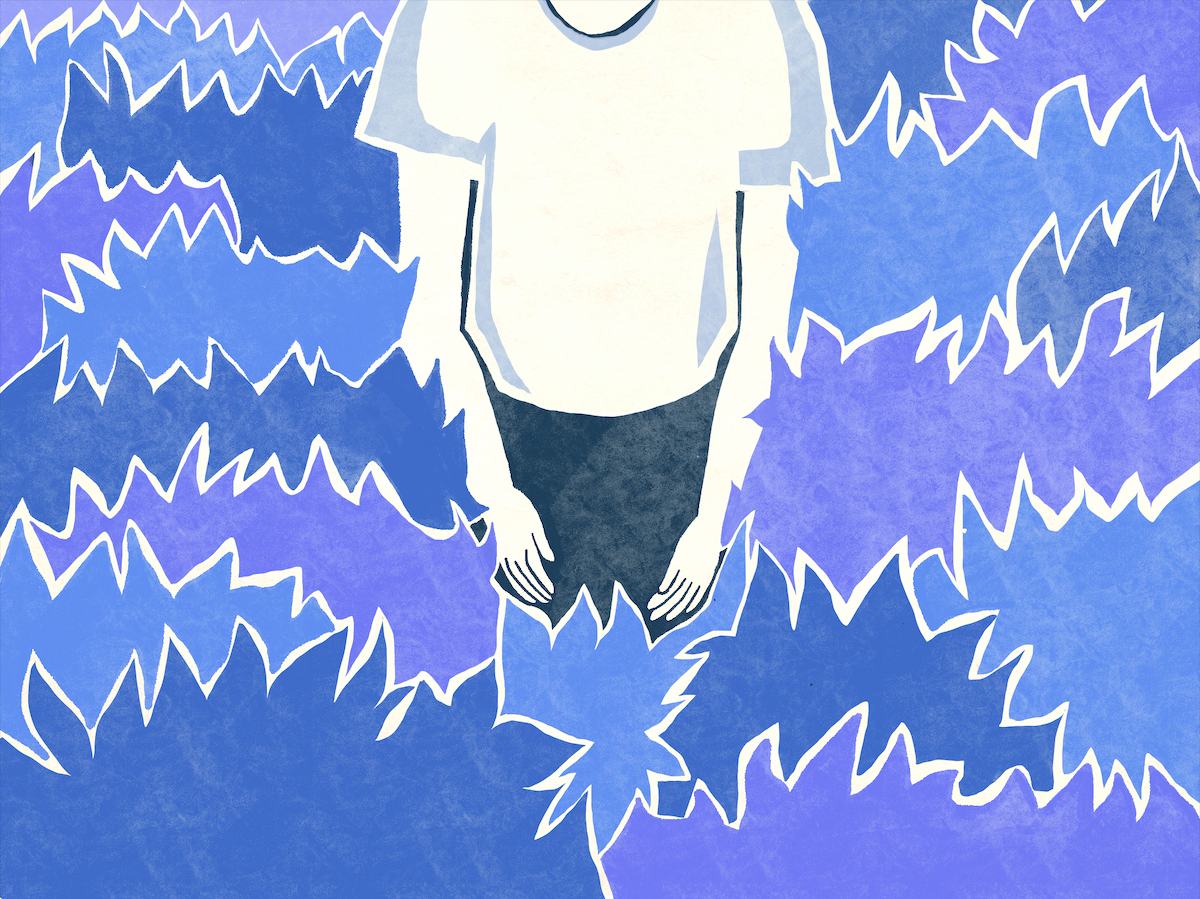
Gaia
“Look at its spine, Josh,” Daiyu said.
The hologram flickered in front of the two of us as she scrolled through 2-D slices, presenting cross sections of a creature resembling a small, ape-like mammal. Or maybe a monkey, I’d forgotten which one used to have the tail.
The perspectives through its body rendered in the air, projected in shades of orange with a spot in the middle that was practically white. A bright blot convulsed in shape and size, like a beating heart, as Daiyu swept through each vertebrate in its spinal column.
“Hang on, I’ll render all the calcium-phosphate dense parts.”
The Vis-Room was silent barring the dim hum of machines and the HVAC, whirring restlessly in the upper corner of the room, crowding out my attempts to form a conclusive thought.
“There we go, look at it!” she said, as the spectre of a skeleton materialised, suspended over the holodeck. Despite the hologram’s size–roughly the height of an average man–the scale floating just underneath the skeletal projection informed me that the actual specimen imaged had only been about twenty centimetres long, including the tail. Without the tail, it could almost have been human.
“Carbon based life goes through the motions doesn’t it? Do me a favour, load up a file in the animal archives. It’s in Mammals, Primates, Callitrichidae, close to the top of the M category, Marmosets. Get the skeleton on the other hologram deck, and just look,” she exclaimed. I obediently pulled up the files.
It was a strange relationship between Daiyu and me. While subordinate to her in the Astrobiology group as a researcher, I was technically her boss in my role as Chief Scientific Officer on the Vessel. At the time, I was happy just to be told what to do. A second ape-or-monkey hologram was projected next to the first and I switched it to “Bones only,” from the console.
The resemblance between the two, floating figures was uncanny. There were no words that could pass between us to capture the magnitude of the discovery. Years spent drifting through space, finding only the odd microbe, and then a Vessel, our Vessel, had hit a planet filled with fully developed life, astonishingly similar to Earth’s.
The planet’s biomes had been the first clue, predominantly rainforests, a couple of deserts, woodlands, marshes and ice caps on the poles. The real miracle was that it had only taken us fifteen years to find it. Well, fifteen years in our reference frame. We were still waiting on the most recent transmissions from home to fill us in on history and whether the rest of Earth’s civilisation was still kicking about.
Dai just stood there with a grin from ear to ear. For the first time in over a decade, it almost felt like we were back home, watching a water display or getting chocolate rations. It dawned on me exactly why she was smiling and before I could diffuse the thought, it rocketed out of her mouth. “Josh, this is it, this has to be the one, we’ll send the signal now and in a couple of thousand years, they’ll come over and before they do, we can start automating the cultiva-“
“Slow down Dai,” I interrupted. “We have atmos nearly confirmed. Great. Temperature’s looking good too, Sol 2’s set to burn for another few billion years as main sequence, I know, but we can’t just start firing signals back home. We haven’t done virial analysis, or full microbial, we only have a couple of thousand scans from the Rover and we’re nowhere near ready with the mineral-“
“Look. At. The. Trees!” she bellowed, pointing furiously at a monitor showing a scan of what was unmistakably a tree, her smile all but gone and a familiar desperation resurfacing on her face. I had started keeping track of every time the feeling had come over the crew members. Since we entered orbit around Gaia (corny name, I hadn’t voted for it), it had been manifesting more frequently, every few days or so now. Exasperation from the frantic desire to be anywhere but on that hopeless, tin-can of a spacecraft now something promising was in sight.
“There’s absolutely no way that all these trees, bushes… don’t roll your eyes at me, they are trees and bushes Josh. You bloody well know it. That confirms the mineral comp right there, the soil is plenty arable. We could sustain farming on Gaia for millennia!” she shouted at me with staccato. I wanted to give in, say we were done and hand in our final report to the Captain. Just a quick message with the subject line “It’s habitable!” and to have spent the rest of the cycle drinking alco-pouches. But in deep space, the room for errors was only as big as your tolerance for endangering all the crew on the Vessel, the Chief Scientific Officer couldn’t flippantly sign off on having achieved the primary objective.
“Dai,” I began, too late to stop her storming out of the Vis-Room. I leaned on the rim of the holodeck and tried to collect myself, thinking Dai and I could discuss it later after she’d cooled off a little. But only moments passed before a sudden suspicion crept into my mind that she had prematurely gone to the Captain. I started bolting down the corridor to the Bridge to head her off, Gaia periodically appearing in the periphery of my vision, through the windows.
Like all Vessel-class spacecraft, the cylindrically shaped ship spun along its axis to provide a centripetal force replacement for gravity, a standard affair but irritatingly, lined with windows all along the outer corridors. The root of my frustration stemmed from my first few years on the ship. Running past all the windows, with an ever-spiralling cosmos in view, had been more than enough to make me feel horribly motion sick.
Looking for some long-dead culprit to blame, I’d consulted the design specs for our Vessel and found the philosophy behind them. The engineers had installed long windows on the perimeter of the craft because the early test-crews had reported decreased feelings of claustrophobia with frequent exposure to a view of the “outside” during long haul missions.
I’d dealt with much worse since then. No one hacked it on a Vessel like this without developing an iron stomach. But what the engineers had failed to anticipate was the effect on crew morale when the sight of a tantalisingly close planet was through the windows, while trapped in an “optimally designed”, propellant wastebasket.
Just as I was about to make a turn and head onto the Bridge towards the Main Deck, I spotted a crop of Dai’s black hair and the dark blue of a Research Corps uniform out the corner of my eye in Viewing Room C. She was staring out the window, her face wet with tears. Compassion. She needed compassion, to feel like she was understood, people depended on that sort of thing according to the “Personnel Wellbeing” Handbook. I could provide that, I thought.
I sidled up to her and silently handed her a handkerchief from a pouch in my work belt. Without so much as a glance in my direction, she took it, blew her nose and dabbed her face. I looked in the direction of her gaze and saw it there, Gaia, spinning perfectly out the window. The second Blue Marble.
“Did you ever think we’d see white clouds again?” she asked, sighing. I knew where this was headed. I knew I shouldn’t have indulged her but I did.
“No,” I answered, honestly. “When I left I suspected, if we were lucky, we’d find one, dusty microbe-bearing planet by the time we were fifty and it’d be the event of my lifetime. Like a more habitable Mars. Then again, how often did we see white clouds back on Earth, eh?” I said, half jokingly. She turned to me, smiling feebly, and unrolled a screen from her belt. Upon tapping it a few times, a picture of a planet appeared, in every respect like Gaia.
“That was Earth,” said Dai. “Only a couple of hundred years before we left, you know? Before particulates, screening, geoengines. Before all of that, Earth looked like this.” She tapped the window as Gaia came back into view of our rotating Vessel. “White clouds everywhere, Josh.”
“I know, I’ve seen the Blue Marble photo. Devin had a big poster of it in his dorm back when we left. You remember?”
She didn’t answer me. The weight of our situation prohibited small talk. The first day we’d entered stable orbit and saw green landmasses and blue oceans, I knew she would never be happy until she’d set foot on that planet. Days earlier, the Rover had beamed up the first data dump from the surface and after months of anxious waiting, the case was far too big to ignore. We, the crew, and humanity, had most likely found a second chance at inhabiting a planet.
“Josh, it’s not just leaving the ship I care about. What we saw back in the Vis-Room? I studied that for a decade, just on Earth. I know you’ve been in this gig for the last ten years but I was sat, out in the safety of the European Caves, reading endlessly about it even when I was a kid. Old biology, the real biology with blue skies, whales in the seas, Pangolins that climbed trees. Genuine, outdoor trees. I’d study and study and it was as close as I could get to feeling like I was outside, on the surface of Earth. Seeing it on Gaia, in the flesh, and knowing that it’s not just pure chance that gave Earth its life, it was…” I smirked and suggested “Intelligent design?”
“Much more wonderful. It’s like a natural path, a strange attractor in the space of biochemical processes. Put all the same ingredients in play and the reaction plays out with near perfect fidelity. No one could have predicted it, we could have sat simulating genealogies on computers indefinitely but until we pulled up real data from another planet, there’d be no real way to believe that life would come out again the same way.” Her eyes had become watery again and I handed her another handkerchief. Comforting crew members wasn’t a strict requirement of the CSO, but I decided in a professional capacity that a hand on her shoulder might help her. It came to me more naturally than I’d anticipated. The sobs finally cleared.
“The base pairs in the DNA are different, the chirality in some molecules might be inverted, which’ll be a huge challenge to overcome but it’s all there, really,” she continued. “Practically every ecological niche is filled, it even has earthworms, and ants. You know what’s funny? Sharks, again. Or Not-Sharks, whatever you want to call them. But they’re still the oldest, the Rover sent up some fragmented DNA analysis and it’s very likely they haven’t required much evolving in the last hundred million years or so.” Filled with the glee of an expert in her element, she began smiling earnestly.
This time, I knew the tears had stopped for good. After that, I’m not sure what did it, maybe I was becoming soft too. Heavens knew all the others had, even the Captain. They’d all become close, spilling their hearts out to one another into the early hours of the cycle, even outside of the counselling sessions. The most I’d given in those years is an acknowledging smile and offering to make a cup of caffeine infusion, yet in that moment I felt it wasn’t enough. Wordlessly, we hugged. It wasn’t unpleasant.
“I know we have to wait, Josh,” she whispered in my ear. “I’m sorry, it’s just… it’s even better than I’d hoped. This could be it.”
I sensed she felt the need to stop hugging, keenly aware that I didn’t normally do this sort of thing. I continued to hold her and whispered back “There’s only one way to know for sure.”She withdrew a little and looked at me quizzically as I began to elaborate. “For starters, the Rover doesn’t have the capacity to test the microbe and virial samples properly on Gaia. It took too much damage on landing and we can’t transport the samples up safely. It’d be too risky to do bring them on the Vessel anyway. The only sure way now is bringing down the lab equipment to test them on site.” She pulled away from me wide-eyed.
“Josh. Are you suggesting-“
“Daiyu. As CSO, I’m commanding you to prepare a proposal in the next thirty cycles, to the Captain, for a crewed mission on one of the pods down to the surface of Gaia. It’ll take a lot of organisation mind you, we’ll have to be in the suits the whole time. In fact, just leak the idea to Devin, he can’t keep his big mouth shut, the whole thing will be planned behind our backs before it’s even announced,” I chuckled.
Before I knew it, her lips met mine. It felt odd.
Illustration: Suzy Vanezis







